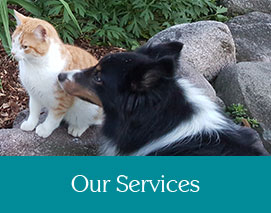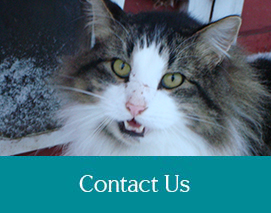Library
-
The eye-catching Great Dane, called the "Apollo of Dogdom," is the tallest of all dogs. The sleek, proud appearance of this breed gives these dogs a look of majesty. Do not expect puppies to have the grace or wisdom of an adult, even though they can stand up to lick you in the face.
-
Although he is devoted to his family – especially to children – the Pyr likes his own space; if you want a Velcro dog, this breed is not for you. That said, the Pyr has much to offer the right individual or family: a calm, sedate demeanor, devotion to the household and its inhabitants, and a willingness to protect all concerned.
-
The Greater Swiss Mountain Dog is a big sweetie-pie; despite his large size, he likes to cuddle with his people and may even think that he's a lap dog.
-
Aloof with strangers, the Greyhound enjoys familial attention, but is not demanding. Greyhounds are perfectly content to lie on a cushy bed and watch you doing your household chores.
-
Head down. Eyes averted. Shoulders hunched. Tail thumping the floor. Body retreating. Your pet looks guilty, maybe even apologetic, right? WRONG! Your pet’s body posture and attitude do not indicate guilt or remorse but represent a response to your body posture and attitude.
-
The Harrier is a typical scent hound: born with a love of the hunt and the desire to follow his nose wherever it leads. But he's more than that when he's given the chance. He's a mild-mannered sort, tolerant and good with children.
-
Who could resist that fuzzy face? The Havanese is a delightful companion for all ages. They have plenty of stamina to keep up with the most energetic child. Bichon-type dogs often perform in circuses and happily show off tricks for their families and other spectators.
-
Head halters can provide better control and safety for some dogs. A proper fit with gentle leash handling and positive reinforcement training is required to make a head halter successful. Some dogs may find the head halters aversive, which means it is not the right tool for them.
-
Phobias related to thunderstorms and fireworks cause dogs to suffer and often increase in intensity over time. Behavior modification combined with medication can be used to reduce a dog's level of fear. Until therapy can be completed, it can be helpful to sit with your dog in a safe room where background music and curtains can be used to help buffer noises and flashing lights.
-
When a beloved family member dies, the surviving people and pets mourn the loss. Dogs and cats rely on their social group for safety and emotional well being. Surviving pets experience the loss of a favored companion and a disruption of the social dynamic. They may also be distressed when they sense changes in the emotions and behavior of household people.



